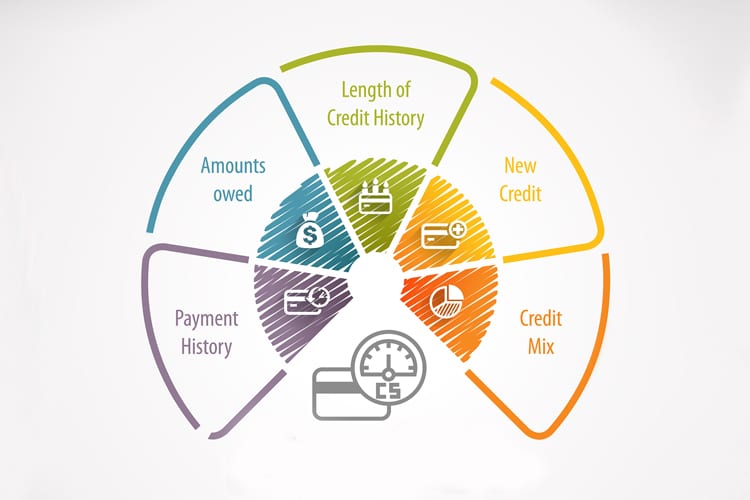6 Steps to Improve Your Credit Scores in Less Than a Month

Your credit scores are central to your financial well-being. A bad FICO® Score can make taking out loans, getting new credit cards, or even finding jobs nearly impossible.
If you have poor credit scores, there’s good news: you can boost it with a bit of help. A small difference in score can make a big change in your finances. Companies often have thresholds above or below, which you do or don’t qualify for credit.
Here are some of the best ways to improve your credit scores quickly and efficiently.
1. Correct Errors On Your Report
Errors on credit reports aren’t very common, but if your credit scores are low, it may be worth ensuring there aren’t any mistakes. The FTC found that about 5% of consumers had an error on their credit report from one of the three major providers.
If you find any inaccurate information on your report, you can file a dispute and have it fixed within 30 days. That same FTC report also showed that 80% of consumers who identified an issue on their report saw their credit scores change as a result.
It can be hard enough to maintain good credit without dealing with issues that aren’t your fault, so carefully read your credit report to see if there’s anything wrong.
2. Make Payments On Time
This can be easier said than done, but making all your payments on time is one of the best ways to improve your credit score and boost your financial health. Payment history is one of, if not the most important aspects of your FICO® Score and VantageScore, so it’s critical that you at least make your minimum payments every month.
Not only do late payments hurt your score, but responsible and timely payments also make you a more attractive candidate to borrow money in the future.
Two popular methods of paying down your debts, the snowball and the avalanche methods, show you how to structure your debts so you make every payment and can still pay off the principal.
3. Remove Any Late Payments
If you’ve struggled to make payments on time in the past, see if you can get late payments removed from your credit report. First things first, cover any outstanding bills you have remaining.
Once you’re in good standing, call your creditor and see if you can have past late payments removed from your payment history. That way, they won’t appear on future credit reports, so your FICO® Score will get an immediate boost.
This might take a little determination. Don’t be afraid to pester your creditors to work out a way to get delinquencies removed from your report. The short-term stress of negotiating with them will be well worth it in the future.
4. Use Your Credit Card (Wisely)
Credit card spending is one of the quickest ways to tank your credit scores, but if you spend wisely, you can use it to your advantage.
Most Americans have two or three credit cards but only use one for most of their spending. If you’re in that camp, using your other cards for small purchases and immediately paying off the full balance can help you build good credit.
Using and paying off more than one card shows creditors that you can use the credit available to your responsibility, which will boost your overall scores.
Ready to up your credit card game? Read this now: Credit Cards 101: Everything You Need to Know.
5. Utilize Your Credit Properly
The actual amount you owe might not be the most important part of your credit report. Instead, compare what you owe to the total amount of credit you have. This is your credit utilization ratio, and if it’s too high, your FICO® Score will suffer.
Experian® recommends keeping your utilization ratio under 30%, so if you have $10,000 in credit, you shouldn’t owe more than $3,000 at once. A lower ratio suggests to creditors that you’re a more responsible spender and on top of your finances.
6. Instantly Boost Your FICO® Score With This
If you haven’t heard of Experian Boost™ yet, make sure to utilize this, as it can instantly boost your credit scores. Provided by Experian®, one of the 3 major credit bureaus, they improve your credit scores by adding positive payment history from utility and telecom bills to your Experian® credit file.
This is huge because previously, your gas, water, electricity, TV, internet, and phone bills that you already pay for didn’t affect your credit. Now it does, and to your benefit of potentially increasing your credit scores.
Results may vary; see website for details.
Ready to get out of debt? Read this: A Complete, Step-by-Step Guide to Get Out of Debt.
Read More:










